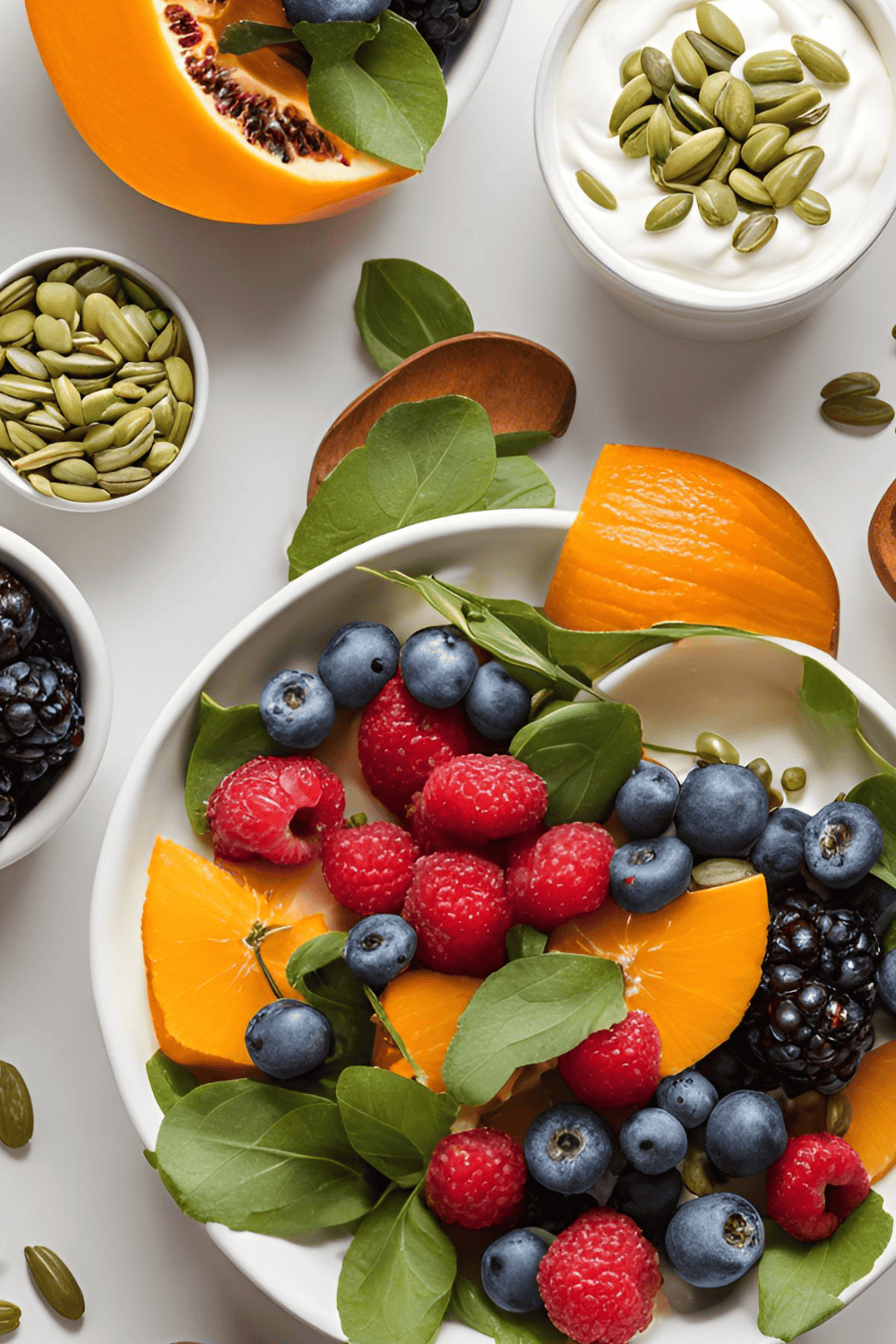The Health Benefits of Probiotics Beyond Gut Health
Probiotics… we hear about them all over the internet. But what are they and what actually are their benefits?
When most people think about probiotics, their minds immediately jump to gut health. And it’s no wonder why—probiotics are most commonly associated with digestive benefits, such as improving gut flora, aiding digestion, and preventing bloating or constipation.
But, the health benefits of probiotics extend far beyond just your gut. These beneficial bacteria can have a positive impact on your overall well-being, from strengthening your immune system to improving mental health.
What Are Probiotics?
Probiotics are live microorganisms—primarily bacteria and yeasts—that, when consumed in food, provide a health benefit. These beneficial microbes are found in fermented foods like yogurt, kefir, sauerkraut, and kimchi, or they can be taken as dietary supplements.
The most commonly known types of probiotics include Lactobacillus and Bifidobacterium, but there are many other strains with unique health effects.
The number and diversity of beneficial bacteria in your gut can influence many different aspects of health, from immune function to mood regulation.
Strengthening the Immune System
The Link Between Gut Health and Immunity
Your gut is home to a significant portion of your immune system. Around 70-80% of immune cells in the body are located in the gut-associated lymphoid tissue (GALT).
This means that the health of your gut can have a direct impact on your body’s ability to fight off infections and illnesses. Probiotics play a huge role in regulating the immune system, helping it to function optimally.
How Probiotics Enhance Immunity
Probiotics support the immune system in several ways. They help maintain the balance of good and bad bacteria in the gut, which can help prevent the overgrowth of harmful pathogens that can trigger immune responses.
Some probiotics also enhance the production of protective antibodies, such as IgA (immunoglobulin A), which helps fight infections. Probiotics can also help activate immune cells like macrophages and T lymphocytes, which play a huge role in the body’s natural defense mechanism.
Fighting Infections
Studies have shown that probiotics can help reduce the frequency and duration of infections, including upper respiratory tract infections, by enhancing your body’s immune response.
They also have the potential to reduce the severity of colds and flu, making them an effective supplement to help keep your immune system strong.
Probiotics and Mental Health
The Gut-Brain Axis
The connection between gut health and mental health is gaining lots of attention lately. Known as the gut-brain axis, this bidirectional communication between the gut and the brain can influence your mood, cognition, and even behaviour!
The gut is often referred to as the “second brain” because it houses millions of neurons and produces neurotransmitters like serotonin (your “happy hormone”), which plays a key role in mood regulation.
Probiotics and Mental Health Benefits
New research suggests that probiotics may have a positive effect on mental health. Certain strains of probiotics have been shown to reduce symptoms of anxiety, depression, and stress.
The underlying mechanism is believed to involve the production of neurotransmitters and the reduction of inflammation in the gut, which in turn has a positive impact on brain function.
For example, Lactobacillus and Bifidobacterium strains have been found to lower cortisol levels (the stress hormone), which can help improve mood and reduce anxiety.
Probiotics may also have an anti-inflammatory effect, as chronic inflammation is often linked to mental health disorders like depression and anxiety.
Probiotics for Skin Health
Gut-Skin Connection
The health of your gut can directly influence the health and appearance of your skin.
Imbalances in the gut microbiome can lead to inflammation and an overactive immune response, both of which contribute to various skin conditions such as acne, eczema, and rosacea.
How Probiotics Help Your Skin
Probiotics have been shown to support skin health in several ways. By maintaining a balanced gut microbiome, probiotics reduce systemic inflammation and promote a healthy immune response, which can lead to clearer, more vibrant skin.
Some studies have even found that probiotics, when applied topically or consumed, can improve the symptoms of acne, eczema, and other inflammatory skin conditions.
Probiotics and Heart Health
The Role of Probiotics in Cardiovascular Health
Did you know that probiotics can also be beneficial for your heart? Several studies suggest that probiotics can help lower blood pressure, reduce cholesterol levels, and improve overall cardiovascular health.
How Probiotics Benefit the Heart
Probiotics may support heart health by influencing lipid metabolism and reducing the levels of harmful cholesterol (LDL) in the blood. Some probiotics can also produce substances that have an anti-inflammatory effect, which helps to lower the risk of cardiovascular diseases.
For example, Lactobacillus and Bifidobacterium strains have been shown to help lower blood pressure by improving blood vessel function and reducing inflammation. These probiotic strains may contribute to better cholesterol levels by reducing the absorption of cholesterol in the intestines.
Reducing Inflammation
Chronic inflammation is a significant contributor to heart disease, and probiotics can play a key role in reducing systemic inflammation.
By balancing the gut microbiome and reducing the production of inflammatory markers, probiotics help support your overall cardiovascular health.
Probiotics and Weight Management
How Probiotics Affect Metabolism
Research suggests that probiotics can also play a role in weight management. By influencing the gut microbiome, probiotics can help regulate metabolism and fat storage.
Some strains of probiotics may also reduce the amount of fat absorbed by the body, helping with weight loss or preventing weight gain.
Probiotics and Appetite Control
Certain probiotics may help control appetite by balancing hormones that regulate hunger. For example, probiotics have been shown to reduce levels of ghrelin, the hormone that stimulates appetite, while increasing levels of peptide YY, a hormone that promotes feelings of fullness. This could help prevent overeating and promote healthier eating habits.
Supporting Healthy Weight Loss
While probiotics alone are not a magic solution for weight loss, they may be a helpful addition to a healthy diet and exercise routine. By improving gut health and supporting proper digestion, probiotics can contribute to maintaining a healthy weight over time.
Best Probiotic Foods
The best way to get probiotics in your body is through food! Here is a list of the best probiotic foods that you can easily add in to your healthy diet.
- Fermented dairy: kefir, yogurt, cheese (check that it contains ‘live active cultures’)
- Sauerkraut
- Kimchi
- Pickles (in brine, not vinegar!)
- Miso
- Tempeh
- Kombucha
- Sourdough Bread
READ: Benefits of Fermented Foods for Gut Health and Immunity

take away
Probiotics are beneficial for more than just your gut health! From boosting your immune system to supporting mental well-being, improving skin health, and promoting heart health, probiotics benefit your whole body.
By incorporating probiotic-rich foods into your diet or taking probiotic supplements, you can support your overall health and wellness.
While probiotics offer numerous potential advantages, it’s always a good idea to consult with a healthcare professional before starting a new supplement regimen, especially if you have underlying health conditions.


